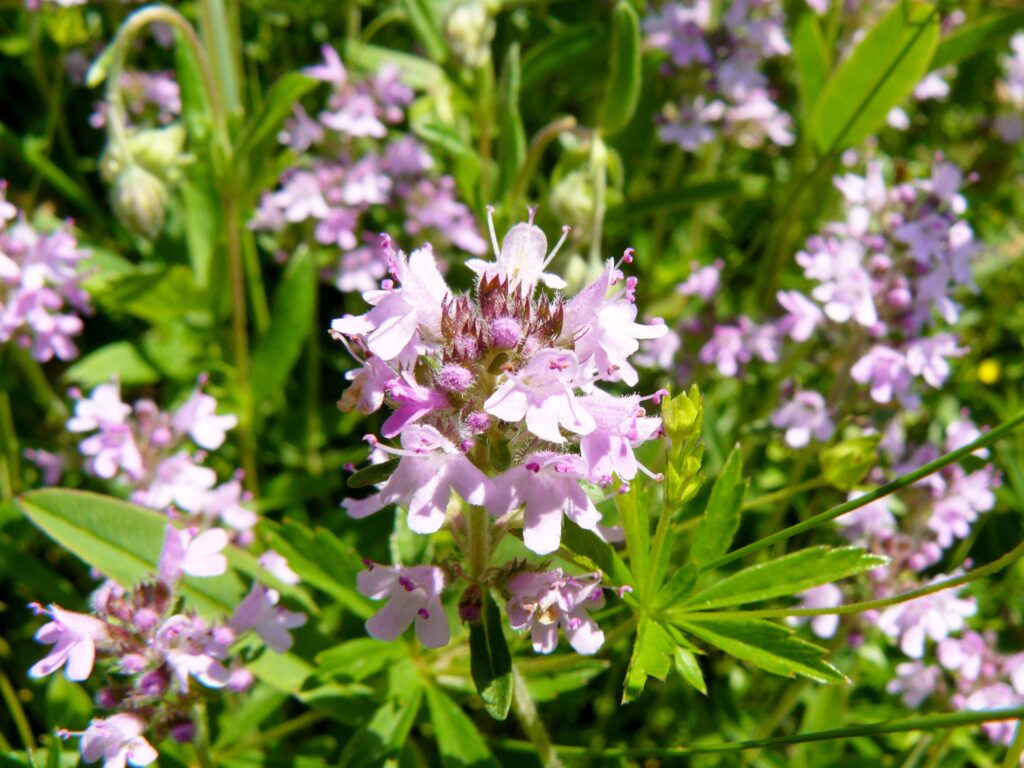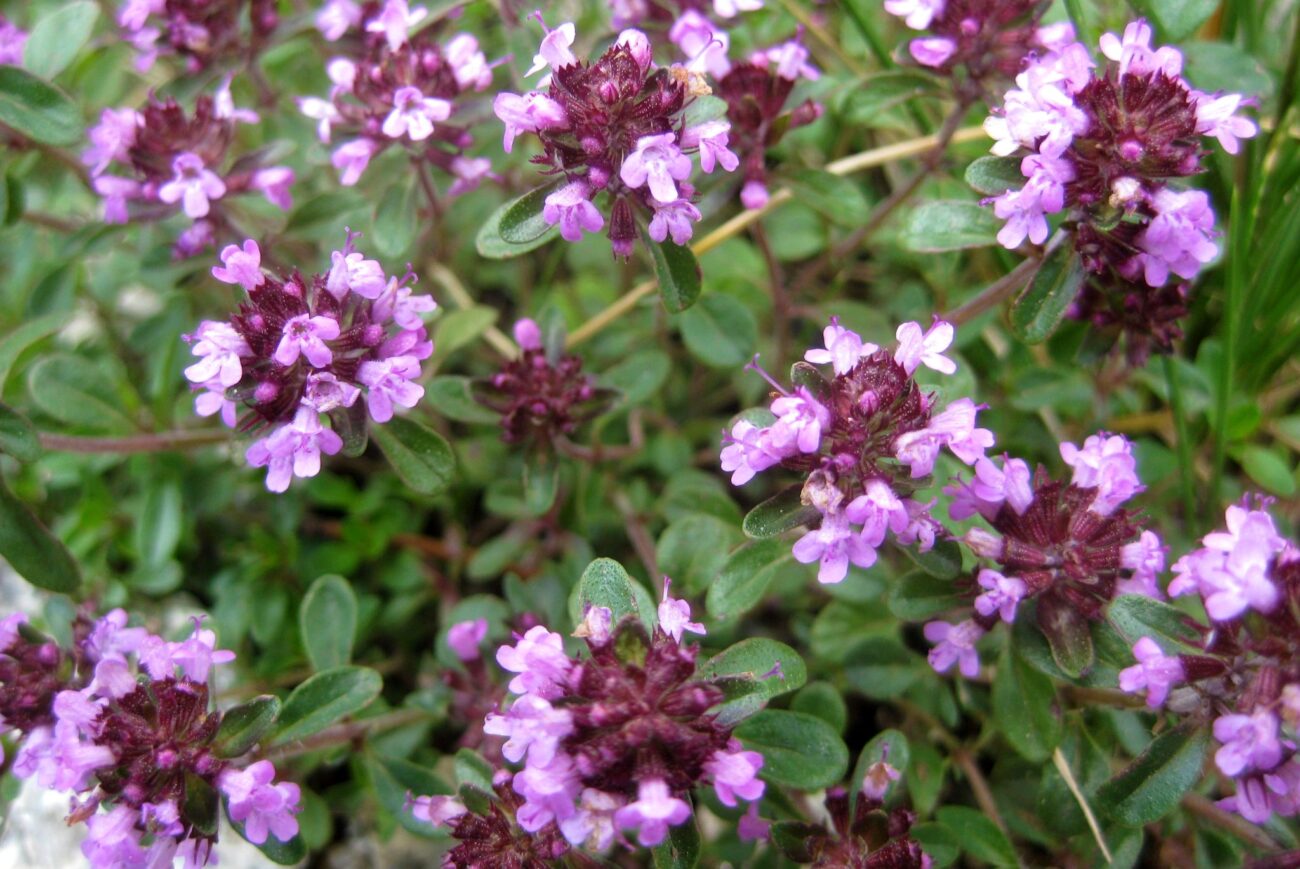Thyme (Thymus serpyllum) is a medicinal plant with a long history in natural medicine. Used for centuries for its therapeutic properties, thyme is valued for its antimicrobial, anti-inflammatory, and expectorant effects. Whether consumed as tea, tincture, or essential oil, this aromatic herb offers numerous health benefits. However, like any natural remedy, thyme should be used with caution, as it also has certain contraindications.
In this article, we will explore in detail the properties, benefits, and possible side effects of thyme.
Properties of Thyme
Thyme contains a range of active compounds that give it remarkable therapeutic properties:
- Essential oils (thymol, carvacrol) – with strong antimicrobial and antifungal effects
- Flavonoids – antioxidants that protect cells from oxidative stress
- Tannins – with astringent and anti-inflammatory actions
- Organic acids – help balance the body’s pH and support detoxification
- Vitamins and minerals – such as vitamin C, iron, and calcium, essential for immunity and bone health
Benefits of Thyme
1. Supports Respiratory Health
Thyme is one of the most effective natural remedies for coughs, bronchitis, and other respiratory conditions. It has expectorant properties, helping to clear mucus and alleviate symptoms of colds and flu.
2. Antimicrobial and Antifungal Properties
Thanks to its high content of thymol and carvacrol, thyme fights pathogenic bacteria and fungi, making it useful for treating mild skin infections and oral issues.
3. Anti-Inflammatory Effects
Consuming thyme tea or using thyme essential oil can help reduce inflammation in the body, benefiting joints and the digestive system.
4. Calms the Nervous System
Thyme has a relaxing effect and is used in aromatherapy to combat stress, anxiety, and insomnia.
5. Improves Digestion
Thyme infusions help reduce bloating, abdominal cramps, and digestive discomfort, while also providing a mild antiseptic effect on the gastrointestinal tract.
6. Promotes Skin Health
Due to its antibacterial and anti-inflammatory properties, thyme can be used to treat acne, eczema, and other skin conditions.
7. Boosts Immunity
Thyme stimulates the immune system, helping the body fight infections and speeding up recovery during convalescence.
Contraindications and Precautions
Although thyme has numerous benefits, it should be used in moderation, as it may have side effects in certain situations:
- Pregnancy and breastfeeding: Thyme is not recommended during pregnancy and breastfeeding, as it may stimulate uterine contractions.
- Liver or kidney conditions: People with liver or kidney issues should avoid excessive consumption of thyme.
- Allergies and sensitivities: Some individuals may have allergic reactions to thyme compounds, manifested as skin irritations or respiratory problems.
- Medication interactions: Thyme may interact with anticoagulants, antihypertensives, or other treatments.
How to Use Thyme
Thyme can be used in various forms:
- Thyme tea: Steep one teaspoon of dried thyme in a cup of hot water for 5-10 minutes. Drink 2-3 times a day.
- Thyme tincture: Use as directed by the manufacturer, diluted in water.
- Essential oil: Use in aromatherapy, massage, or apply topically for skin conditions (always diluted).
- Culinary herb: Add to various dishes for a rich flavor and additional health benefits.

Thyme is an incredibly valuable medicinal plant with numerous health benefits. From supporting respiratory and digestive health to its antimicrobial and relaxing effects, this herb is a must-have natural remedy. However, it is important to use it with caution, especially for those with sensitivities or chronic conditions.
Have you ever tried thyme tea or thyme essential oil?
Let us know in the comments how you use it and what benefits you’ve noticed! 🌿

